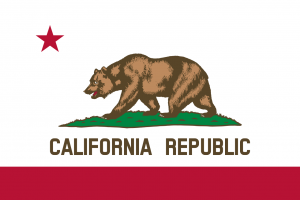Nonprofits in California are rising up in opposition against a proposed bill that would serve as a “warning label” to charitable solicitation in the state. About 800 state charities have come out in opposition.
Assembly Bill 2855, sponsored by Assemblyman Jim Frazier (D-11), would require that all websites produced by or on behalf of a charity that solicits in the state have a prominent link to the state Attorney General’s website. Similarly, all documents produced by or on behalf of charities would be required to feature the website’s address. The website would contain consumer rights information and charity research resources, according to the bill. The Attorney General’s office would produce such material no later than July 1, 2017.
“By doing that you are essentially saying that donors should be suspicious of charity,” said Nancy Berlin, policy director for the California Association of Nonprofits headquartered in San Francisco, Calif. “It’s a buyer-beware kind of label.” Berlin categorized the bill as a “misplaced attempt at trying to increase transparency.” Resources already exist to help potential donors determine whether a charity is doing good work, and Form 990s are readily available.
The fear is that the required link would negatively impact giving and that implementation of the bill would be expensive for charities to comply with and for the state to enforce. Any charity, worldwide, that seeks donations from California residents would have to redesign webpages and reprint brochures, posters and other materials, Berlin said.
The association has collaborated with state legislators in the past on transparency efforts, but has not been consulted on Assembly Bill 2855. “We have not been involved in crafting the bill. We are not anticipating any stakeholder process at the moment and we think, what would be much better, would be to stop this bill at this point,” Berlin said. If the issue needs to be explored further, Berlin recommended a meeting of the minds including the Attorney General’s office, local charities and other stakeholders.
Assembly Bill 2855 passed out of the Assembly Privacy and Consumer Protection Committee last month. The proposal is set for a hearing before the Assembly’s Appropriations Committee at a yet-to-be-determined date, Berlin said. Association members have been alerted and are in the process of reaching out to committee members.
Frazier, in an email, said that he has and will continue to listen to nonprofits’ concerns regarding the bill. The concept for the proposal came on the heels of calls for greater financial transparency among organizations. Frazier cited media reports that have identified organizations that have made questionable financial decisions and have dedicated relatively few fundraising dollars to mission.
The opposition the bill has received has caught the assemblyman off-guard. “I’ve been surprised by the backlash from the nonprofit community,” Frazier said. “We all know great charities that do amazing work in our communities – I have even started two nonprofits and supported dozens of others for decades. I don’t want charities that do great work, are run efficiently, and tirelessly strive to fulfill their stated mission to have a shadow cast upon them by bad actors.”
A separate section of state code not altered by the bill would make noncompliance a misdemeanor offense. Frazier hopes that the bill will help ensure that donors give to charities fulfilling their stated mission as opposed to bad actors.
“People should have the right to know how much the executive management of a given nonprofit makes in salary and benefits,” he said. “For example, according to the California Association of Nonprofits most recent Form 990, their president, executive director, and chief operating officer made over $600,000 combined in salary and benefits.”
David Thompson, vice president of public policy for the National Council of Nonprofits in Washington, D.C. opined that the bill would infringe upon organizations’ free speech as it would mandate the inclusion of content. “Suspect is a polite word,” Thompson said of the proposal. “Flat-out wrong is the reality.”
Thompson was unaware of any precedent for a bill resembling Assembly Bill 2855. The U.S. Supreme Court, in the past, has ruled against states that have attempted to mandate speech. Should other states follow California’s lead, charity websites could end up looking like advertisements for attorneys general’s offices, according to Thompson.
